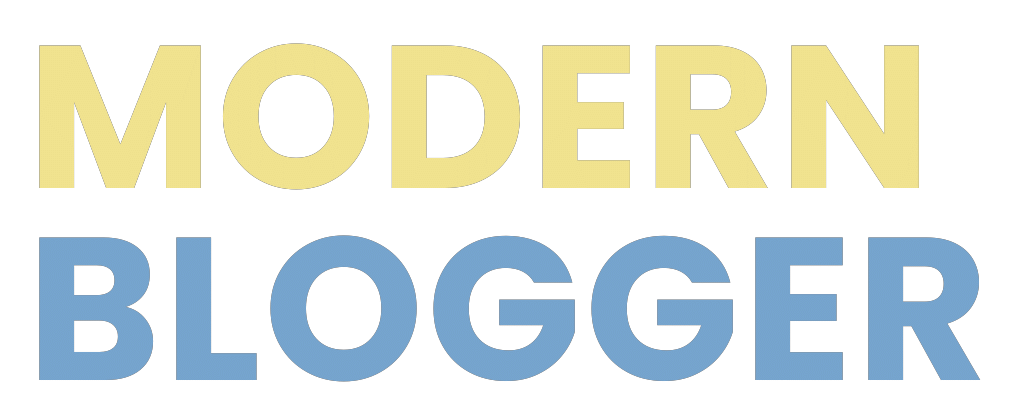How I Prepared for My Manaaki Scholarship Interview (and How You Can Too)
If you’re reading this, you’re already a step closer to New Zealand.
Just let that sink in.
You got shortlisted. That’s not small. That’s huge. That means your story, your dreams, and your application stood out. And now you’re one interview away from something life-changing.
I remember when I got that email—I must have read it five times before I could breathe again. Excitement, disbelief, panic… all at once. I knew I wanted this more than anything. But the interviews? Those always made me nervous. I hate speaking, and I had no idea what to expect. Was it going to be super formal? Were they going to grill me? Was I ready?
Well, fast forward, I did it. I had the interview. I got the scholarship. And now I’m here in Aotearoa New Zealand, enjoying the misty winter mornings, learning from amazing professors, and building friendships I’ll carry for life. So today, I want to help you get here too. Here’s what helped me prepare—and what I want you to know before you go into yours.
1. Start With Your “Why”
Before anything else, I had to come back to my “why.” Not the polished version. Not the one I thought they wanted to hear. The real one.
Why did I apply? Why this course? Why New Zealand?
And my answer wasn’t fancy. It was human. I talked about how I wanted to contribute something meaningful back home in the Philippines, but I needed better tools, deeper knowledge, and a learning environment that nurtures curiosity and innovation in the field of agribusiness. I wanted to bring ideas home, not escape them. I know a lot of current or alumni who don’t want to go back home. That they would rather pay the scholarship amount than stay 2 years and serve the country. Especially when you live a good, extravagant life in New Zealand and then return to the dumps. I get it. I feel that too, at times, being here. But because I identified my “why” before coming here, I know and am excited to go back home to help the country even in the smallest ways.
Your “why” doesn’t have to sound like a TED Talk. It just has to be real. Because when you speak from that place, your words carry weight. And the interviewers? They’ll feel it.
2. Stick to What You Wrote—They’re Going to Ask About It
One thing I wasn’t expecting—but am really glad I did—was reviewing my application like it was a script. Because of the questions? All of them are exactly the same in the application (as far as my experience in 2024). So make sure your answers are the same as what you wrote, because they will be reading them and cross-checking your answers through the interview.
Maybe, they might ask some follow-up questions. If you said you want to improve education for girls in rural areas, they’ll ask how. If you mentioned a leadership project, they’ll ask you to talk about what role you played and what results came out of it.
They’re not trying to catch you off guard—they just want to see that what you wrote was authentic.
So don’t try to add a bunch of new information that wasn’t in your original application. That’s when it can get confusing or feel inconsistent. Trust the story you already told. Just be ready to explain it, expand on it a little, and bring it to life with your voice. At the end of the day, if the experiences you wrote are real, then there’s no need to panic. Just speak from the heart and reminisce. It’s not about adding more—it’s about showing up honestly for what you already put down on paper.
3. Talk Out Loud—Practice!
I didn’t just think about what I would say—I said it. Out loud. In the shower. While walking around. Even whisper to myself at night.
I picked a few common questions and practiced speaking naturally:
- “Why this course?”
- “How will this help your country?”
- “Tell me about a time you faced a challenge.” (Yes, the situational questions in the application will resurface, so prepare for that.)
- “What do you plan to do after graduation?”
Sometimes I recorded myself just to hear what I sounded like. It helped me iron out my rambling moments and get more comfortable with pausing when I needed to think.
Pro tip? You don’t need to sound “professional.” You just need to sound like you—clear, grounded, and ready. Have fun also, laugh if you need to! In my interview, I got so nervous my voice was shaking at the beginning, and they let me take long breaths first. 🙂
4. Be Yourself—Seriously, They Want That
Cliché as it may sound, this one’s real.
The interviewers aren’t there to intimidate you. They’re not cold or straight-faced. In fact? Mine were super friendly. They laughed. They joked. At one point, they even said, “Wait… are those chickens in the background?” I was so embarrassed—but then they started laughing and asked, “How many chickens do you have?”
See? It wasn’t a trick. It was a conversation.
That moment reminded me: they weren’t just evaluating my answers. They were getting to know me. So don’t try to act like someone else. If you’re nervous, it’s okay to say, “I’m a bit nervous, but I’m really excited to be here.” If you stumble, smile and keep going. If you want to pause and think, take your time.
There’s no right or wrong answer. One of the scholars in my batch even answered that she remembers New Zealand because of the scenic background in the Karaoke. They’re human. So be human too. That’s what they’ll remember.
5. Know Why You Chose New Zealand—And Why You Chose That School and Program
One of the most important questions they asked me—and one I was fully prepared for—was: Why New Zealand? Why that university? Why that program?
And here’s the truth: I didn’t just choose New Zealand because it’s stunning (though it is). I chose it because of its values—respect for the environment, strong education standards, a deep commitment to sustainability, and the unique way it honors indigenous knowledge through the Māori worldview. It felt like a place where I wouldn’t just grow as a student, but as a person.
But I also got specific. I chose Lincoln University because, through my research, I found that it’s the best land-based university in New Zealand. That mattered to me. I applied for the Agribusiness program because I come from a rural farming community, and I’ve seen firsthand the gap between agricultural practice and economic opportunity.
But I’ll be honest—there was also a personal reason.
I’m from a rural area. And deep down, I knew I’d be more comfortable living in a smaller, quieter town than in a big, bustling city. That’s why I chose Lincoln Township. It’s a peaceful environment, surrounded by farms and open space, which reminds me of my hometown. I knew I would thrive here, not just academically, but mentally and emotionally. If I want to visit the city, I could just take a one-hour bus ride to Christchurch Centre.
So when they ask you about your choices, go beyond just rankings or prestige. Let them see the human side of your decision-making. Why does this place feel like a place you can grow? Why does this course align with both your goals and your soul?
The more honest and specific you are, the more your story will stand out.
6. Set the Stage—Your Space, Your Mind, Your Breath
Since the interview was online, I treated it like a sacred space. I cleaned my little room. Sat near a window for natural light. Wore a formal shirt and coat. Had my notes nearby, a glass of water, and my printed application copy in case I needed it.
But most importantly, I had a sticky note next to my laptop that just said:
“You can do this.”
Because I needed that reminder. It’s so easy to feel like everyone else is more qualified, more prepared, more impressive. But none of that matters in that moment. What matters is your truth, your heart, your story.
Before the call started, I closed my eyes and took three deep breaths, and prayed to God. I whispered, “Let Your will be done.”
Final Thoughts — A Note From This Side of the World
Now I’m living the life I used to dream about. Walking through green hills. Studying what I love. Meeting people from all over the globe. And every once in a while, I pause and think about the version of me who was still waiting for the interview. Who wasn’t sure. Who doubted.
I believe they will open more spots for the Philippines, from 16 to 40. So take that as a comforting notion that you have a better chance in this tough competition. Some might ask why no more applications from Africa and the Americas. Well, personally, I also have no idea, as it was the Ministry’s decision to focus on Asia Pacific. Anyways, I’m pretty sure you’re reading this because you’re on the next stage. So let me just say this:
You got this!
And I’ll be here, always cheering you on.
With love from New Zealand,
KARL BRYAN BAGO
Manaaki Scholar Batch 2025, Proud Chicken Owner, and Professional Dream-Chaser. The one wearing a blue jacket in the featured image*








One Comment